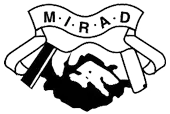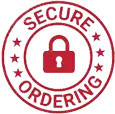To Ban or Not to Ban The Controversy of Personalised Number Plates
Reg Plates ArticleTo Ban or Not to Ban The Controversy of Personalised Number Plates

Personalised number plates, a way for drivers to express themselves on the road with a custom combination of letters and numbers, have become increasingly popular. While some see them as a harmless bit of fun, others argue they can be offensive, distracting, and even create safety issues. This sparks the debate: should some personalised number plates be banned?
The Case for Banning:
Offensiveness: A primary concern is the potential for offensive plates. These can target specific races, religions, genders, or sexual orientations. For example, a plate containing a homophobic slur could cause distress to targeted groups. Even seemingly harmless plates, like those referencing bodily functions, can be seen as vulgar or inappropriate. Proponents of a ban argue that public roads should be an inclusive space, and offensive plates have no place.
Distraction: Another concern is driver distraction. A personalised plate that's particularly eye-catching or requires effort to decipher could take a driver's focus away from the road, even if for a brief moment. This can be especially dangerous in high-speed situations or heavy traffic. Banning certain combinations could help keep drivers focused on the task at hand.
Safety Issues: Some argue personalised plates can be used to impersonate law enforcement or other official vehicles. This could be a tactic used by criminals to pull over unsuspecting drivers. Additionally, some plates might be difficult for law enforcement to read clearly, hindering identification in case of an incident. Banning specific combinations could help mitigate these risks.
Preserving Decorum: Public roads are shared spaces, and some argue personalised plates can create a cluttered and disrespectful visual environment. A ban on certain types of plates, like those with excessive abbreviations or slang, could help maintain a sense of order and decorum.
The Case for Freedom of Expression:
Individuality: Opponents of a ban argue that personalised plates are a form of self-expression. They allow drivers to show their personality, interests, or even a sense of humour. A ban would take away this harmless outlet for individuality.
Inconsistent Enforcement: Critics point out that the current system for banning plates is subjective and inconsistent. What one person finds offensive, another might not. This inconsistency can lead to frustration and accusations of bias.
Slippery Slope: A complete ban on some personalised plates raises concerns about censorship and freedom of speech. Where do you draw the line? Could a ban on offensive plates pave the way for restrictions on other forms of personal expression?
Limited Impact: Opponents argue that the overall impact of offensive plates is minimal. Most drivers are focused on the road and wouldn't be significantly bothered by a fleeting glimpse of an offensive plate.
Finding a Balance:
The debate highlights the need for a balanced approach. Here are some potential solutions:
Clear Guidelines: A more comprehensive and objective list of banned combinations could be created. This list should be regularly reviewed and updated to reflect societal changes.
Stronger Enforcement: The process for reporting and removing offensive plates could be streamlined. This would ensure consistency and quicker action against truly problematic plates.
Promoting Responsible Choice: Awareness campaigns could encourage drivers to choose personalised plates that are appropriate for a public space.
Conclusion:
Personalised number plates offer a chance for self-expression but raise concerns about potential offensiveness and safety issues. A complete ban is likely unnecessary, but a balanced approach with clear guidelines, stronger enforcement, and responsible driver choices can ensure our roads remain a safe and respectful space for everyone.
It all started back in 1991 when our love and obsession for private number plates was born.
Since then we have grown steadily over the years to become a leading light in the private number plate industry holding our own stock of high quality number plates and many thousands of registrations we are selling for trade and private clients including many celebrities and sports personalities.


- FREE TRANSFER SERVICE - your paperwork is handled by our trained team
- OVER 30 YEARS EXPERTISE - long established and trusted company
- DVLA RECOGNISED RESELLER - linked directly from the DVLA website
- TRADE ASSOCIATION MEMBERS - MIRAD and CN Guild members


